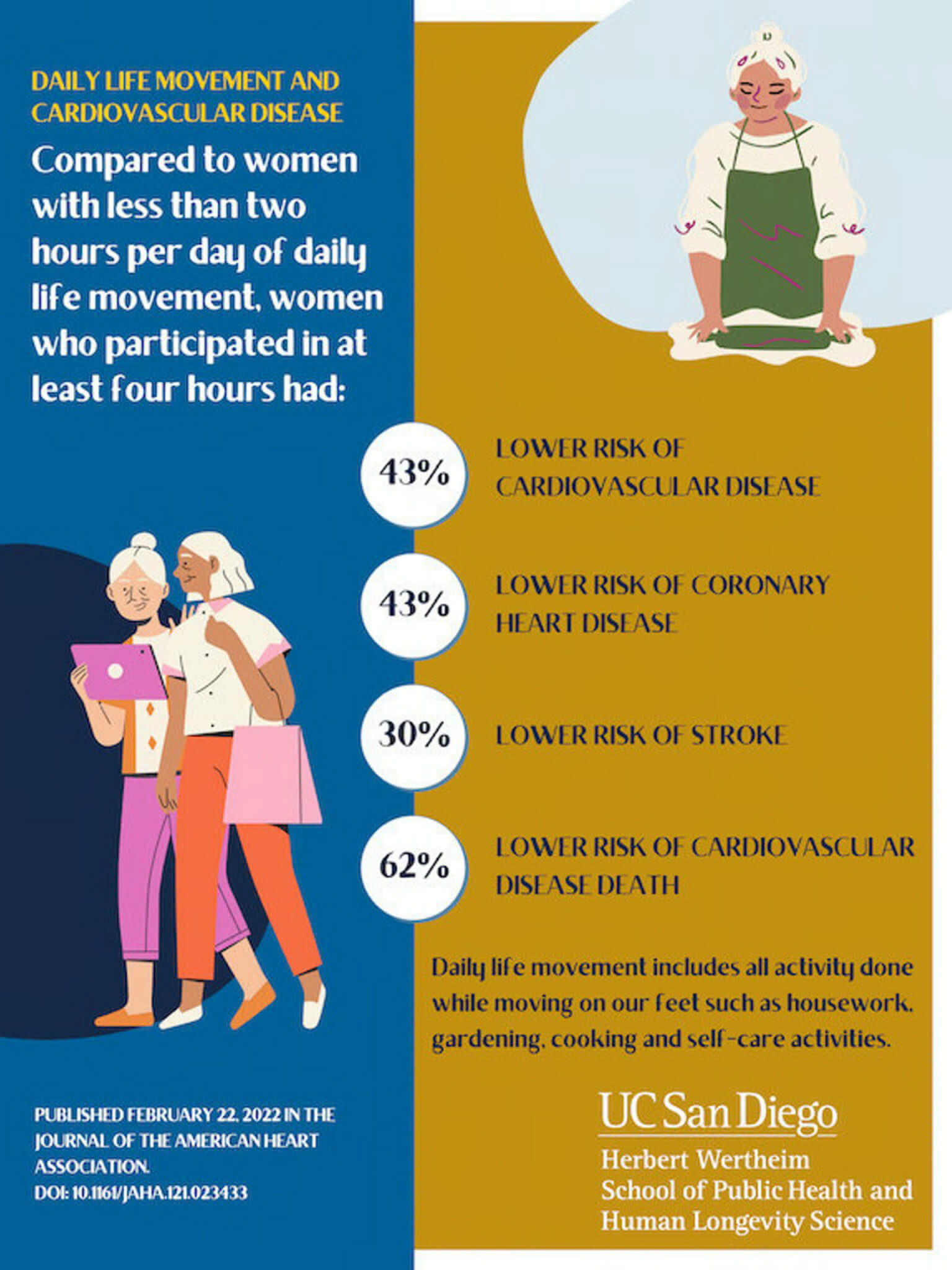TORRANCE, Calif. — Going through menopause is often a difficult time for women. Beyond the common symptoms — hot flashes, sleep struggles, mood changes — the realization of this major transition in life can be hard to face. As it turns out, scientists are now suggesting there’s even more cause for concern: heart health. New research shows the risk of heart disease in women skyrockets after going through menopause.
Through midlife, women have a notably lower risk for heart issues compared to men. Perhaps that’s why the ladies generally live longer than the gents. These latest findings, presented at the American College of Cardiology’s Annual Scientific Session, show that the gap quickly closes post-menopause. That’s because plaque levels in the heart’s arteries increase at a much faster rate in older women.
Study authors say that not only does heart disease risk become practically equal later in life, but women can expect to see those odds exceed those for men. For those who take cholesterol-lowering statins, unfortunately, the findings don’t change. Even with statin use, many women in the study still saw a substantial increase in dangerous plaque buildup.
So, what’s behind this sudden shift? As with so many other health risks, it comes down to hormones.
“After menopause, women have much less estrogen and shift to a more testosterone-heavy profile,” explains study lead author Dr. Ella Ishaaya, an internal medicine physician at Harbor-UCLA Medical Center, in a statement. “This affects the way your body stores fat, where it stores fat and the way it processes fat; it even affects the way your blood clots. And all of those [changes] increase your risk for developing heart disease.”

What’s The Proof?
How did Ishaaya and her colleagues come away with this worrisome takeaway? The team analyzed data from 579 post-menopausal women who were taking statins. All of the women had undergone two heart scans, at least a year apart, to measure their coronary artery calcium (CAC) score. CAC is essentially a measure of plaque buildup – fat, calcium, and other substances – in the heart’s arteries. The higher the CAC score, the higher the risk of a heart attack or other cardiac event.
To put the findings into perspective, the researchers matched each woman with a man of a similar age, race, statin use, blood pressure, and diabetes status. They then divided the participants into three groups based on their initial CAC levels: 1-99, 100-399, and 400 or higher.
The results were striking. In the group with the lowest initial CAC scores (1-99), women saw their CAC levels rise by a median of eight points between their first and second heart scans – double the median increase of four points seen in their male counterparts. Similarly, in the middle group (100-399), women’s CAC levels jumped by a median of 31 points, nearly twice the median increase of 16 points observed in men. Only in the highest CAC group (400 or higher) was there no significant difference between the sexes.
What Can Post-Menopausal Women Do To Lower Heart Disease Risk?
The study is a sobering reminder that heart disease, the leading cause of death in both men and women, doesn’t discriminate. But historically, women’s heart health has often been overlooked or undertreated, in part because women tend to develop heart disease later in life than men and may experience different, sometimes subtler symptoms. Times may be changing though: one recent study released by the American Heart Association suggests that nearly 45% of women over the age of 20 already have heart disease.
That said, the message is clear: post-menopausal women should be proactive about their heart health. This means talking to their doctor about risk factors, following up on recommended tests or monitoring, and being aware of the unique challenges they face as their bodies adapt to life after menopause.
One easy way for women to improve their heart health is to stay on their toes. A 2022 report found that women who spent four hours a day doing movement-oriented activities — gardening, cooking, vacuuming and even showering — were 62% less likely to die from heart disease.

Dietary changes could also help. Following the Mediterranean diet lowers the risk of heart disease in women by a quarter, a recent study out of Australia points out. This means eating primarily plant-based foods, including a wide array of fruits and vegetables, whole grains, legumes, and nuts. It incorporates healthy fats such as olive oil instead of butter and uses herbs and spices for flavoring rather than salt. Fish and poultry are eaten in moderation, while red meat should be avoided.
Another suggestion: dine with family and friends. A 2021 report by The North American Menopause Society says that women who eat alone are more likely to have heart problems. This could be partly due to mental health struggles that result from social isolation. Experts say there’s a direct connection between declining mental health and heart issues.
Perhaps on that same token, practicing self-compassion can improve heart health in older women. University of Pittsburgh researchers found that women who engage in self-compassion had thinner carotid artery walls and less plaque buildup than women who don’t use such practices. Self-compassion involves treating oneself with kindness, understanding, and support, especially during moments of failure, inadequacy, or suffering. It’s the practice of being as caring and compassionate to oneself as one would be to a good friend in similar situations, recognizing that imperfection and difficulties are part of the shared human experience.
Again, if you’re concerned about your heart health, advocate for yourself and schedule an appointment with your doctor. Regular checkups are essential and voicing your worries are the best way for you to ensure you get all your questions answered. Be proactive and write down ways you can improve your heart health. Put the list on your refrigerator door or bathroom mirror. This simple practice can motivate you to do more — and result in plenty more healthy years of life.
